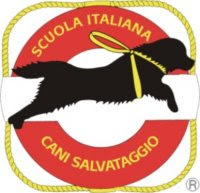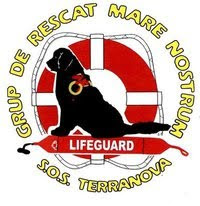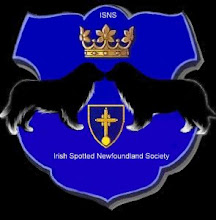Saturday, November 4, 2023
The Ever-Faithful Newfoundland Dog
(By Edward Jessie, Esq., from "Anecdotes of Dogs")
"One of the Magistrates of Harbour-Grace, the late Mr. Garland, had an old dog, which was in the habit of carrying a lantern before his master at night, as steadily as the most attentive servant could do; stopping short when his master made a stop, and proceeding when he saw him disposed to follow him. If his master was absent from home, on the lantern being fixed to his mouth, and the command given, “Go, fetch your master,” he would immediately set off and proceed directly to the town, which lay at the distance of more than a mile form the place of his master’s residence. He would then stop at the door of every house which he knew his master was in the habit of frequenting, and, laying down his lantern, would growl and strike the door, making all the noise in his power until it was opened. If his master was not thee, he would proceed further until he had found him. If he accompanied him only once into a house, it was sufficient to induce him to take that house in his round.
The principal use of this animal in Newfoundland, in addition to his qualities as a good watch-dog and a faithful companion, is to assist in fetching from the woods the lumber intended either for repairing the fish stages, or for fuel; and this is done by dragging it on the snow or ice, or else on sledges, the dog being tackled to it.
These animals bark only when strongly provoked. They are not quarrelsome, but treat the smaller species with a great degree of patience and forbearance. They will defend their masters on seeing the least appearance of an attack on his person. The well-known partiality of these dogs for water, in which they appears as if in their proper element, diving and keeping their heads under the surface for a considerable time, seems to give them some connexion with the class of amphibious animals. At the same time, the several instances of their superior sagacity, and the essential services which they have been frequently known to render to humanity, give them a distinguished rank in the scale of the brute creation. I will mention another instance of this.
The Durham packet of Sunderland was, in 1815, wrecked near Clay, in Norfolk. A faithful dog was employed to use his efforts to carry the lead-line on shore from the vessel; but there being a very heavy sea, and a deep beach, it appeared that the drawback of the surf was too powerful for the animal to contend with. Mr. Parker, ship-builder, of Wells, and Mr. Jackson, jun., of Clay, who were on the spot, observing this, instantly rushed into the sea, which was running very high, and gallantly succeeded, though at a great risk, in catching hold of the dog, which was much exhausted, but which had all this time kept the line in his mouth. The line being thus obtained, a communication with the vessel was established; and a warp being passed from the ship to the shore, the lives of all on board, nine in number, including two children, were saved."
Subscribe to:
Post Comments (Atom)









































No comments:
Post a Comment